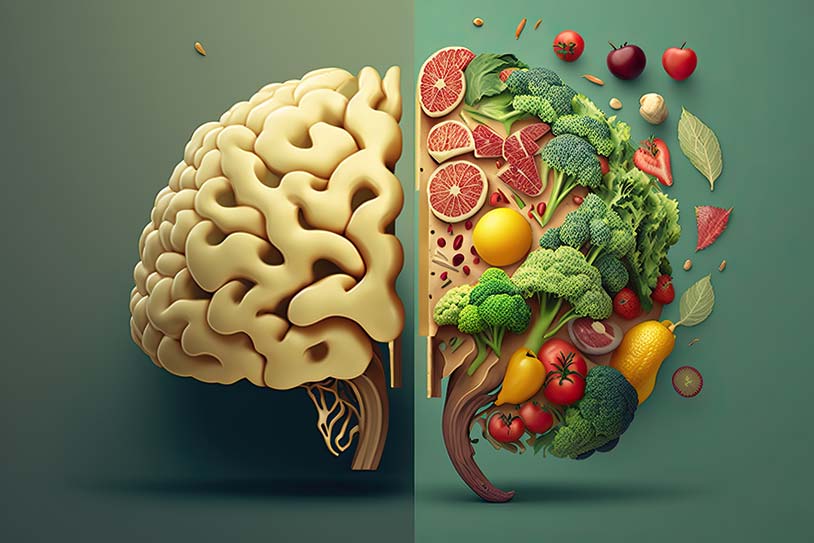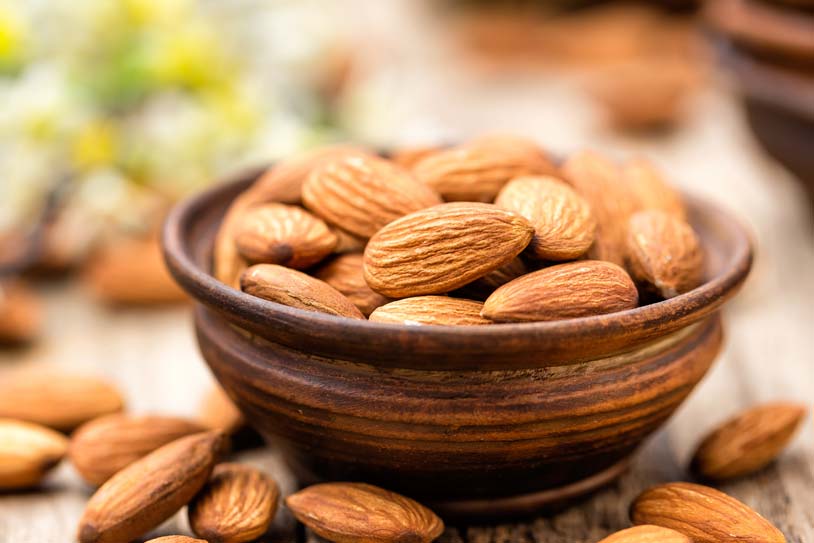
Maintaining a healthy mind is just as important as caring for our bodies. While no single food can magically transform your brain or erase anxiety, a balanced diet rich in certain nutrients can boost cognitive function and reduce stress. This article explores the top Foods Linked To More Brainpower & Less Anxiety, helping you make smart choices for both mental clarity and calm.
Why Diet Matters for Brain and Mood
Our brains consume about 20% of the energy we take in, making proper nutrition vital. Nutrients from whole foods support neuron health, enhance memory, and regulate mood. Conversely, diets high in processed sugars and unhealthy fats can contribute to cognitive decline and heightened anxiety. By focusing on foods that nourish both brain and body, you set the stage for sharper thinking and a steadier mood.
Key Nutrients for Brainpower and Stress Relief
Before diving into specific foods, let’s highlight the nutrients that play central roles:
- Omega-3 Fatty Acids: Support cell membrane structure in the brain and reduce inflammation.
- B Vitamins (B6, B9, B12): Aid in neurotransmitter production, influencing mood and memory.
- Antioxidants (Vitamins C, E, and flavonoids): Protect brain cells from oxidative damage.
- Magnesium: Helps regulate stress hormones and supports nerve function.
- Tryptophan: A building block for serotonin, the “feel-good” neurotransmitter.
- Calcium and Vitamin D: Work together to manage cortisol, the stress hormone.
Incorporating foods rich in these nutrients can improve concentration, enhance memory, and ease feelings of anxiety.
Top Brain-Boosting Foods
1. Green Leafy Vegetables
Leafy greens such as spinach, kale, and Swiss chard are packed with vitamin K, folate, and beta-carotene. These nutrients may slow cognitive decline and improve overall brain health. Try adding a handful of fresh spinach to your morning smoothie or tossing kale into a hearty salad.
2. Fatty Fish
Salmon, sardines, and trout are high in omega-3 fatty acids, which support neuron communication and protect against plaque buildup linked to Alzheimer’s disease. Aim for at least two servings of low-mercury fatty fish per week. If fish isn’t your favorite, flaxseeds, chia seeds, and walnuts are excellent plant-based sources of omega-3s.
3. Berries
Blueberries, strawberries, and raspberries contain flavonoids that enhance memory and slow age-related mental decline. Research shows that eating berries twice a week can delay memory loss by up to two years. Sprinkle fresh berries on oatmeal or yogurt for a tasty, brain-boosting treat.
4. Nuts and Seeds
Walnuts, almonds, and pumpkin seeds offer a mix of protein, healthy fats, and antioxidants. Walnuts, in particular, contain alpha-linolenic acid (ALA), a plant-based omega-3 linked to sharper thinking. A small handful of mixed nuts makes a convenient, on-the-go snack.
5. Whole Grains
Complex carbohydrates in oats, brown rice, and whole-wheat bread provide a steady release of glucose, the brain’s main fuel. This sustained energy helps maintain focus and prevents the mood swings that come with sugar spikes and crashes.
6. Tea and Coffee
Moderate caffeine intake from coffee or tea can improve alertness and solidify new memories. Green tea also contains L-theanine, an amino acid that promotes relaxation without drowsiness. Enjoy a cup mid-morning or early afternoon to boost productivity.

Foods That Help Reduce Anxiety
1. Probiotic-Rich Foods
Fermented foods like yogurt, kefir, sauerkraut, and kimchi support a healthy gut microbiome. Emerging research links gut health to mood regulation, suggesting that probiotics can help alleviate anxiety and stress.
2. Magnesium-Rich Choices
Almonds, spinach, and black beans are excellent sources of magnesium, which helps control the body’s stress response. Incorporate these into salads, soups, or stir-fries to keep your magnesium levels in check.
3. Zinc-Containing Foods
Zinc plays a role in neurotransmitter function and may reduce anxiety. Foods rich in zinc include cashews, chickpeas, beef, and egg yolks. A balanced diet with these options supports both brain health and calm.
4. Complex Carbohydrates
Sweet potatoes, quinoa, and whole-grain pasta help maintain stable blood sugar, reducing irritability and nervousness. Complex carbs also boost serotonin production, promoting a sense of well-being.
5. Anti-Inflammatory Spices
Turmeric and ginger contain compounds that combat inflammation and oxidative stress, both linked to anxiety. Add fresh ginger to stir-fries or turmeric to soups and smoothies for a flavorful, calming effect.
How to Combine Brain and Mood Foods
Creating meals that target both cognition and calm can be simple. Here are some ideas:
- Breakfast Bowl: Oatmeal topped with blueberries, walnuts, and a drizzle of honey.
- Salmon Salad: Mixed greens, grilled salmon, avocado slices, and a lemon-olive oil dressing.
- Stir-Fry: Brown rice with tofu, spinach, bell peppers, and a ginger-turmeric sauce.
- Snack Pack: Greek yogurt with chia seeds and sliced strawberries.
- Smoothie: Spinach, banana, flaxseed, and almond milk blended until creamy.
By focusing on whole, nutrient-dense ingredients, you can nourish your brain and soothe your nerves in every bite.
Lifestyle Tips to Enhance the Effects of Your Diet
Diet is only one piece of the puzzle. For maximum benefit:
- Stay Hydrated: Even mild dehydration can impair concentration and mood. Aim for eight glasses of water daily.
- Exercise Regularly: Physical activity boosts blood flow to the brain and reduces stress hormones.
- Prioritize Sleep: Aim for 7–9 hours per night to support memory consolidation and emotional regulation.
- Practice Mindful Eating: Slow down, savor each bite, and listen to your body’s hunger cues to avoid emotional eating.
Sample One-Week Meal Plan
| Day | Breakfast | Lunch | Dinner | Snack |
| Monday | Whole-grain toast with avocado | Quinoa salad with chickpeas | Baked salmon with steamed broccoli | Handful of almonds |
| Tuesday | Greek yogurt with berries | Turkey and spinach wrap | Stir-fry tofu with brown rice | Apple slices with peanut butter |
| Wednesday | Oatmeal with walnuts and banana | Lentil soup with mixed greens | Grilled chicken and sweet potato | Carrot sticks with hummus |
| Thursday | Smoothie (spinach, flaxseed, mango) | Mixed green salad with tuna | Whole-wheat pasta with veggies | Greek yogurt |
| Friday | Scrambled eggs with spinach | Black bean and corn salad | Baked cod with quinoa and asparagus | Orange wedges |
| Saturday | Whole-grain pancakes with fruit | Veggie and hummus pita | Turkey chili with brown rice | Handful of mixed nuts |
| Sunday | Chia pudding with berries | Avocado and egg on toast | Stir-fry shrimp with bell peppers | Celery sticks with almond butter |
Conclusion
Optimizing your diet with Foods Linked To More Brainpower & Less Anxiety is a powerful strategy for maintaining mental sharpness and emotional balance. By focusing on nutrient-rich whole foods—such as leafy greens, fatty fish, berries, nuts, and fermented products—you can fuel your brain and calm your mind. Pair these dietary choices with healthy lifestyle habits like hydration, exercise, and sufficient sleep to unlock your full cognitive and emotional potential.
If you’d like personalized guidance on soothing your nerves through diet, please call Stenzel Clinical Services at 630-588-1201. Our experts are ready to help you.
“Optimizing your diet with Foods Linked To More Brainpower & Less Anxiety is a powerful strategy for maintaining mental sharpness and emotional balance.
Stenzel Clinical Services
Recent Posts
Reclaiming the Savanna Brain
In the modern world, we are surrounded by an abundance of food, safety, and information. Yet, paradoxically, we are [...]
Navigating Digital Distractions
You settle in to tackle the work you've been putting off, but interruptions are guaranteed. First, the inevitable: your [...]
Common Therapy Myths That Keep People From Getting Help
There are a lot of stories people tell themselves about therapy that stop them from reaching out. Some of [...]



